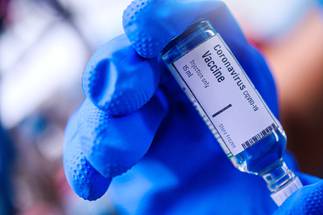Dermatologists React to Reports of Adverse Events in Filler Patients Who Got COVID-19 Vaccines

Risk of swelling in filler patients is no reason to skip the vaccine, dermatologists caution.
As case reports of facial swelling in patients with a history of dermal filler treatment who received Moderna’s COVID-19 vaccine accrue, dermatologists are devising new protocols for how to best address this potential phenomenon, including the optimal timing of fillers and vaccines, updated consent forms for filler patients, and potential treatments protocols.
Moderated by Nashville dermatologist Michael Gold, MD, panelists from Modern Aesthetics® magazine’s “Coping with COVID-19” video series, including Joel L. Cohen, MD, Mark S. Nestor, MD, PhD, Joel Schlessinger, MD, Amy Forman Taub, MD, and Doris Day, MD along with special guest Adam Jackson, PharmD, a clinical pharmacy specialist at Kaiser Permanente in Denver, discussed what we know—and still don’t know—about these incidents during a roundtable discussion.The full video will be coming soon to ModernAesthetics.com.
“This is a real phenomena, very rare, but real,” says Mark S. Nestor, MD, PhD, Director of the Center for Clinical and Cosmetic Research and the Center for Cosmetic Enhancement in Aventura, FL. He is also a Voluntary Professor in the Department of Dermatology and Cutaneous Surgery and the Department of Surgery, Division of Plastic Surgery, at the University of Miami, Miller School of Medicine. “Historically we have seen this response from other vaccines and with immuno-inflammatory conditions like otitis externa.”
Many Questions Remain
Others like Dr. Cohen, Director of AboutSkin Dermatology and DermSurgery in Denver, and Dr. Schlessinger, adermatologist and cosmetic surgeon in Omaha, NE and President or LovelySkin.com, are waiting to see more data before they draw any conclusions. “Based on the reporting, we don’t know what filler and we don’t the duration of the symptomatology,” Dr. Cohen says.
The main take-home message is that a history of fillers should not preclude a person from getting the COVID-19 vaccine when it is made available to them, said Dr. Jackson. “Is it a contraindication? Is it a precaution? My answer is no and no.” Dr. Jackson expects that similar reactions will be reported with the Pfizer-BioNTech vaccine, as well, due to the similarities between the two vaccines.
Should Patients Wait It Out Before Fillers?
These concerns will likely diminish the filler population for a few months, predicts Dr. Taub, Medical Director and Founder of Advanced Dermatology and skinfo in Lincolnshire and Glencoe, IL.
When patients ask Dr. Nestor about this potential risk, he says that “it’s very rare, but if you want to wait [on filler injections], that is fine.” In the three reported cases, one of the participants had filler two weeks before the vaccination, another had it six months prior.
Dr. Day, a New York City dermatologist, is planning to tell patients to wait at least two weeks after receiving the COVID-19 vaccine to get fillers— which is similar to what she advises regarding flu shots and dental work. “I give space for anything that makes your immune system reactive,” she says.
Dr. Nestor suggests waiting for at least three or four weeks after the second dose of the vaccine to receive filler if a patient is concerned about potential reactions.
The magic number is 42 days for identifying true delayed vaccine reactions, Dr. Jackson adds. “When we have six weeks follow-up data on three million doses, we will know more on the short- and long-term adverse effects,” he says.
Many of the panelists are already updating filler patient consent forms to reflect the possibility of an adverse reaction if they have had the COVID-19 vaccine.
The adverse events reports likely won’t affect dermatologists’ filler choice. “It’s not specific to filler. It’s a non-specific revving up of the immune system,” Nestor says. Although there is no information on what fillers were used in the case reports, panelists are more comfortable with hyaluronic acid as it can be easily dissolved in the event a reaction occurs.
“We have seen reactions like this to hyaluronic acid, but people will continue to use it more because there is a way out,” Cohen says.
The good news is that these reactions appear to be self-limiting based on the limited data available. If treatment is necessary, panelists agreed that steroids or antihistamines can be helpful.
Should Staff Vaccines Be Mandatory?
Another issue is staff vaccinations, and most panelists plan to require staff members to receive COVID-19 vaccines when they are offered. Some already have had all or most of staff their vaccinated. “I am tending toward mandatory vaccination of staff,” Dr. Schlessinger says.

Facebook Comments